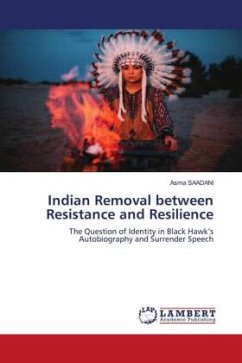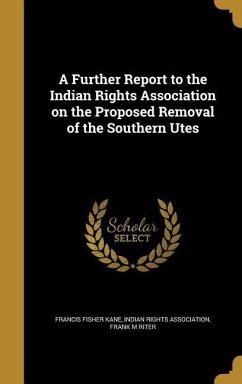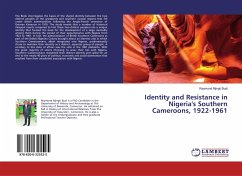Despite the vast scholarly research on the Indian Removal Act of 1830, little is known about the perspective of Indigenous tribes, notably the Sauk and Fox communities that were directly affected by the assimilation agenda of President Jackson. Accordingly, the overall image that emerges from the Euro-American history is negative, depicting Native American groups as hostile, brutish, and violent. This work recovers one of the North American tribes 'military perspectives written primarily for an American audience and discusses resulting racial issues found within the Native society, in particular, the effects of relocation on family ties, sense of place and identity formation. Black Hawk's rhetoric adds nuance to our understanding of who the Sauk tribes were, why they initiated the deadly war of Black Hawk, and how their identity evolved while affected by removal, war, defeat and displacement. This study argues for a malleable perception of Native American identity formation, one that recognizes the amalgamation of the old and new identity and perceives the attached transformations as natural and necessary.
Bitte wählen Sie Ihr Anliegen aus.
Rechnungen
Retourenschein anfordern
Bestellstatus
Storno








